
Domestic
11:18, 01-May-2019
How are automation and AI changing human labor?
Updated
18:25, 01-May-2019
By Yu Jing
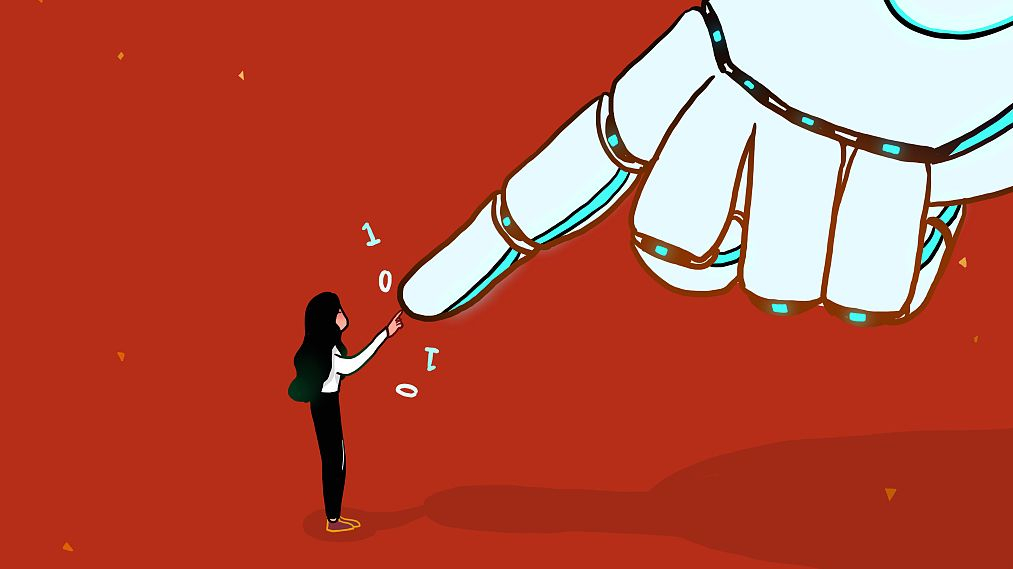
With a background in artificial intelligence (AI) and cognitive science, a developer named Xiao Chen from a leading game company in China, knew that one day AI would disrupt industries. But when he was told that his colleagues were laid off because AI could now do their jobs, he was still taken back.
Last year, Xiao found that a large number of the personnel at the customer service division were redirected into other departments. The staff, whose primary role is to receive calls from players and then submit the complaints or requests to developers, were replaced by chatbots. Xiao requested not to disclose the name of the company since he is not authorized to speak about internal operations within the company. Neither had his company announced the layoff decision to the public.
As automation and AI are gradually applied to various industries, it can take a toll on some workers, especially those on the lower level of the value chain. At the same time, it may also create entirely new industries that humans haven't conceived of.
Disruption at the call center
It is not rare to see Internet companies outsourcing customer service to third-party contractors, but in Xiao's company, call center staff members are still full-time employees.
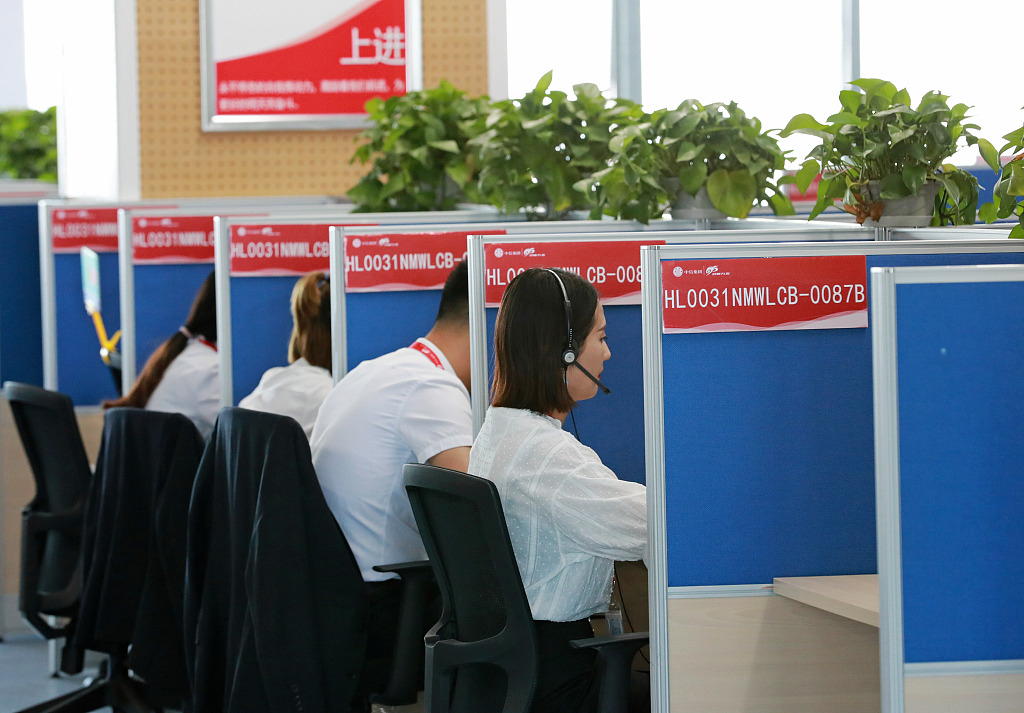
A call center in Inner Mongolia. /VCG Photo
A call center in Inner Mongolia. /VCG Photo
This is because many complaints or requests are related to game design and development, explained Xiao. Typically, people working in that department would collect this information and submit it to the game studio, after which developers will take charge.
"Since many requests or complaints are the same, the job is highly repetitive and can be easily replaced," said Xiao. The automated customer service system that Xiao's company installed is based on natural language processing and most of the frequently asked questions like "what to do when my account was locked" can be easily answered on the platform.
Even before AI started to disrupt the industry, the turnover rate in the call center was 40 percent, Xiao said. A regulatory overhaul in the gaming industry last year led to an all-out disruption in the industry.
In a new report published by the World Economic Forum called "The Future of Jobs," it indicates that in the next five years, as many as 7.1 million jobs can be lost through redundancy, or automation but 2.1 million new jobs are expected to be added.
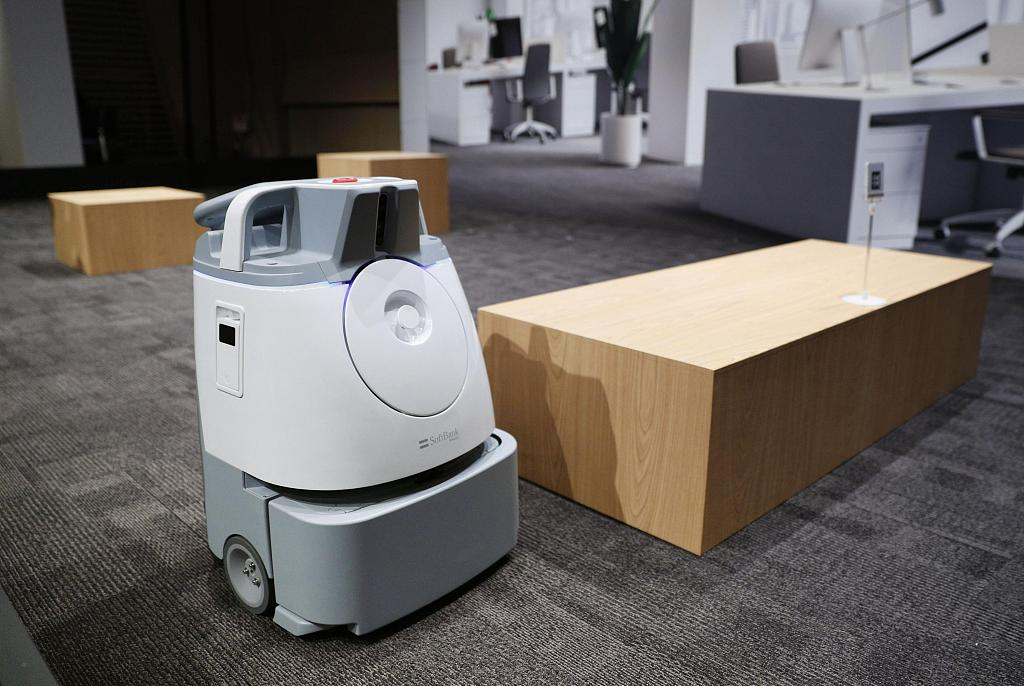
Photo of a robot that can clean floors. /VCG Photo
Photo of a robot that can clean floors. /VCG Photo
More importantly, the skills required for jobs are likely to change as technological disruption takes place, the report writes. Social skills, such as persuasion, emotional intelligence and teaching others, will be in higher demand across industries over narrow technical skills.
Changing requirement for skills
As the AI disruption swept through the call center in Xiao's company, a few still have a hold on their jobs, namely, those serving the VIP clients – players who spend at least 100,000 yuan on the game.
"These people can engage with 20 VIP clients at the same time and make all of them happy – that is a skill," said Xiao. The people not only help players deliver their requests to the developers; they use tactics to encourage players to be more invested in the game and increase their loyalty to the game.
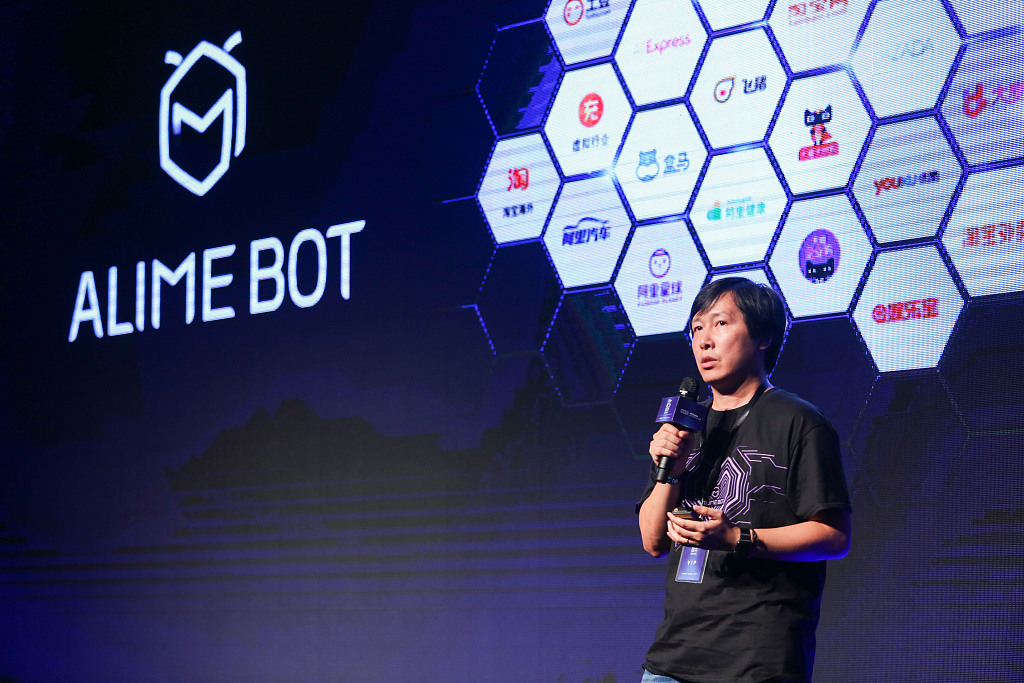
A press conference for the launch of Alibaba's AliMe Customer Service Bot. /VCG Photo
A press conference for the launch of Alibaba's AliMe Customer Service Bot. /VCG Photo
Zeng Qingxi, an AI industry insider, says that challenges presented by AI overwhelmingly fall upon the younger, inexperienced staff members in each industry. "Fresh graduates, before they move up the career ladder, may find their jobs taken by AI," Zeng said. "The question thus becomes, how to give young graduates a development path so that they can get over the time most susceptible to AI replacement."
But not all fear the rise of AI and broad application of automation. Some argue that part of the promise of AI has always been to liberate humans from repetitive and easy tasks.
In the north China logistics center of e-commerce site Vip.com, we saw warehouse workers sorting packages not by hand, but with an automated sorting system. Once the worker puts the product on the conveyor belt, the system, by scanning the bar code on the products, sorts the products based on the region they need to be shipped to.
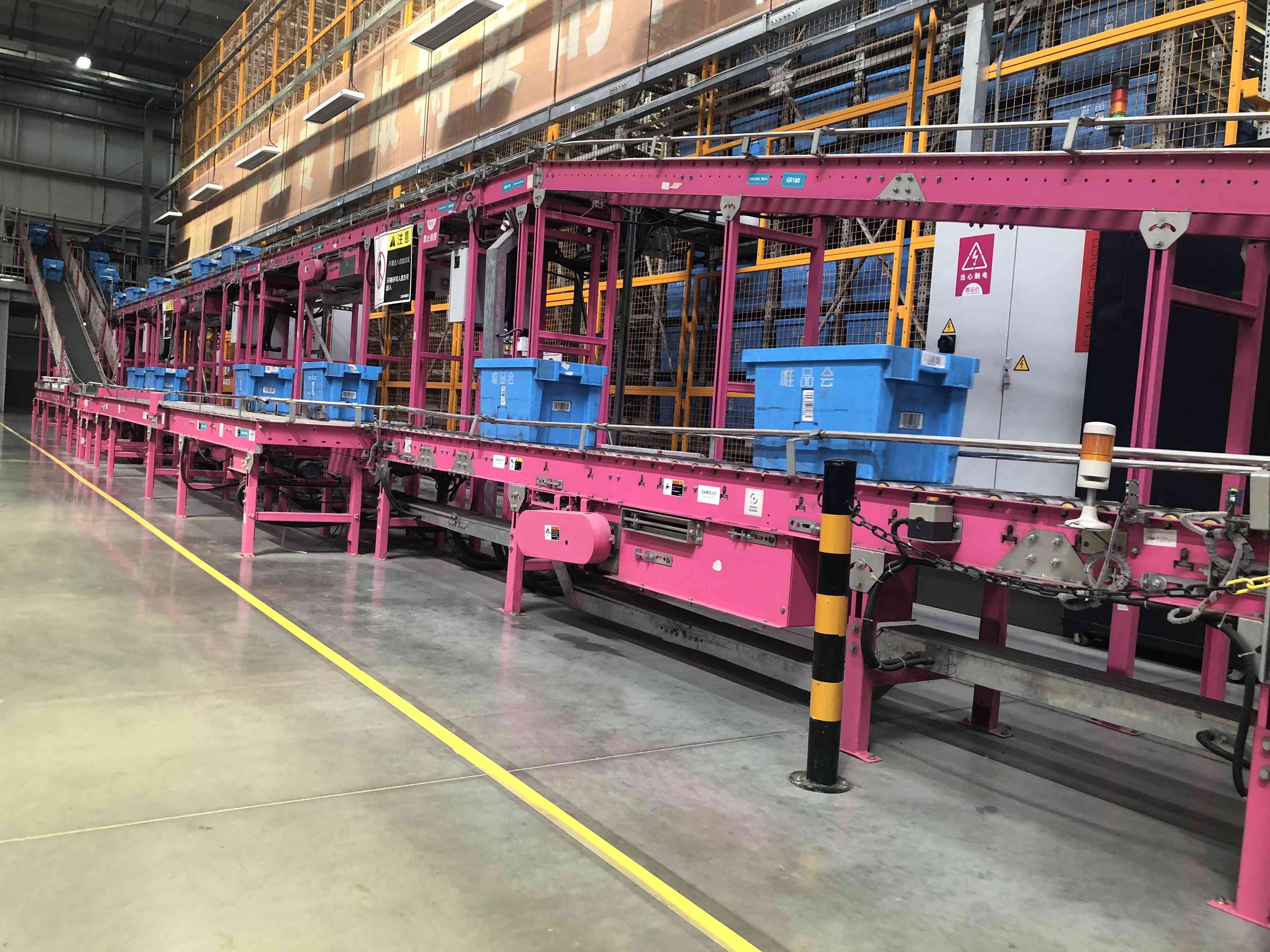
The automated sorting system at north China logistics center of Vip.com. /CGTN Photo
The automated sorting system at north China logistics center of Vip.com. /CGTN Photo
"Humans can get tired. Workers, if walking in the warehouse for a long time on a single day, will experience a sharp drop in productivity," said Men Shuguang, director of operations for north China at Vip.com. "If the warehouse is large and product variety is huge, you need to have an automated system."
He argued that automation would not result in loss of jobs, since corporations are still in the process of development, and thus the demand for labor persists.
An employee at Vip.com who preferred to stay anonymous also concurred, saying rather than worrying about being displaced by automation, they often send suggestions to the company on how to improve the automated system.
What does it take for companies to retrain workers?
It takes time to transition to the age of automation and AI. Not only do those who experience displacement need to find something meaningful to do, but those who stay on the job have to be retrained to learn the new skill sets required for the job, e.g., how to work along with robots.
In Vip.com's north China logistics center, warehouse workers all have a mobile portal which gives them detailed instructions on how to use the automated system.
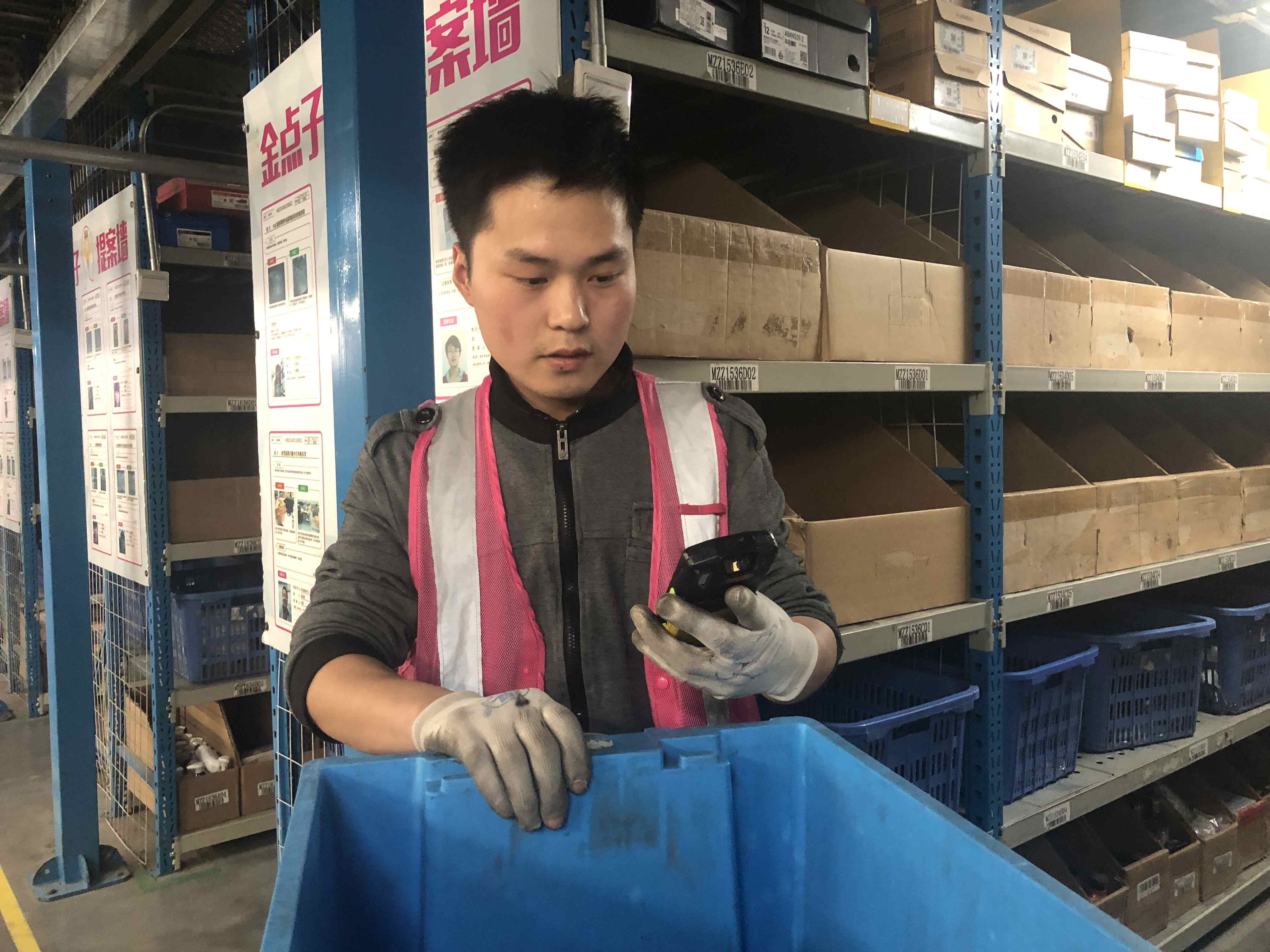
A warehouse worker with the mobile portal. /CGTN Photo
A warehouse worker with the mobile portal. /CGTN Photo
Go to the shelf to pick up product 1011. Press "done" on the portal. Put the product on the conveyor belt. Press "done." Each time one finishes the task shown on the portal, one press "done," and the next task pops up.
"Here we want to make the task as simple as possible for our workers… You follow the direction given by the automation system and that is all," said Men. He said the company updated the system several times to make it easier to use, and thus the training required for workers would not be much.
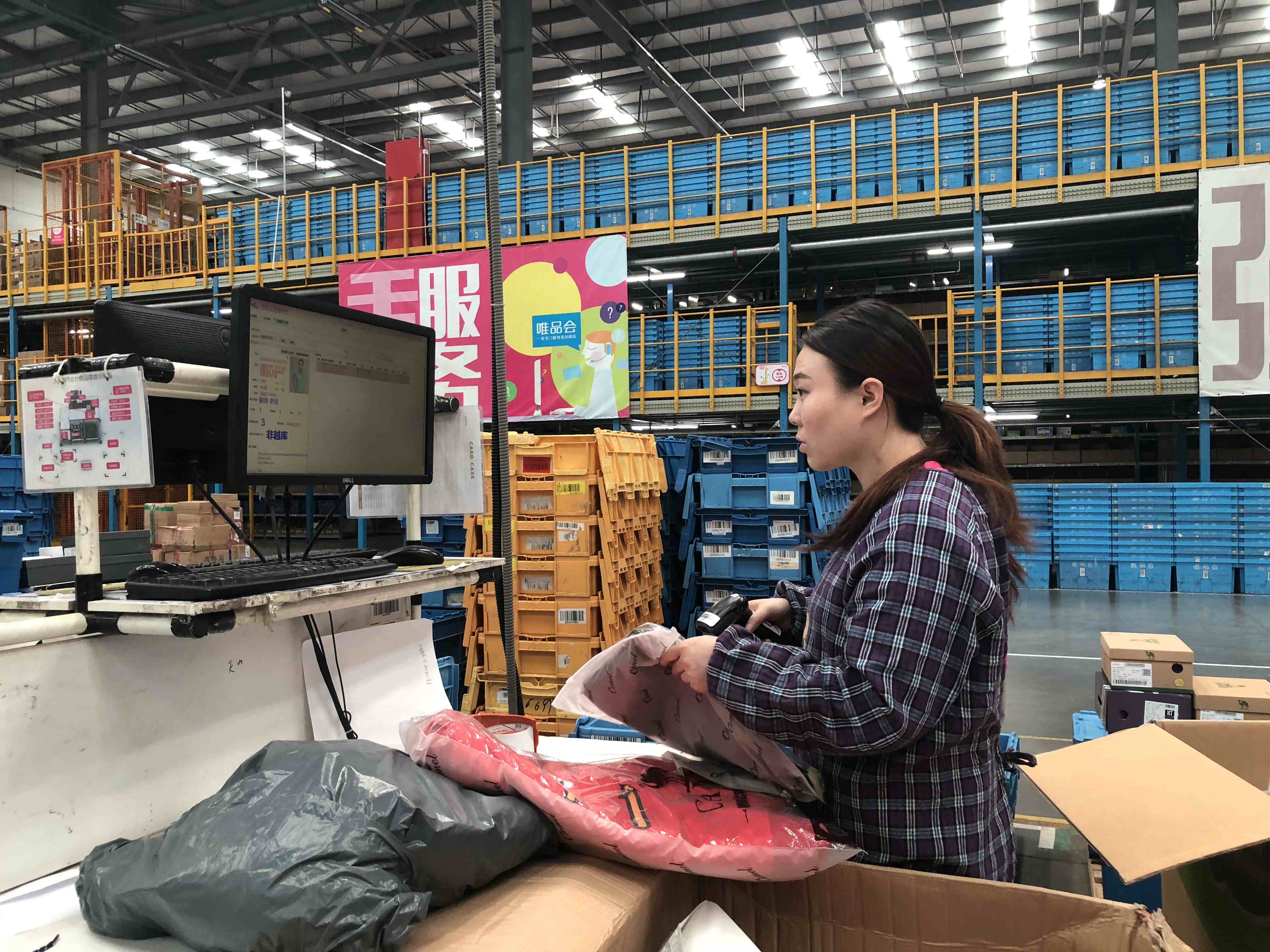
An employee scans the bar code of a product at the warehouse. /CGTN Photo
An employee scans the bar code of a product at the warehouse. /CGTN Photo
But it is still rare for companies in China to offer training, Zeng Qingxi, the AI industry insider said. Since China still enjoys a demographic dividend – companies can always find new recruits and the willingness to offer training is low.
On top of that, many tech and Internet companies' priority are still focusing on the short term, e.g. getting venture capital funding and filing for IPO, long-term concerns such as adapting to the AI age is not being considered, Zeng added.
But he is less pessimistic when it comes to the difficulty of making that transition. He argued that from a business sense, companies would make it as easy as possible for employees to learn to work with machines and robots. Because if it is not, the cost of a new recruit will skyrocket.
"The impact will be similar to that brought by the Industrial Revolution – hard to say if the total number of jobs will go up or down – but structural changes will come to the labor market."

SITEMAP
Copyright © 2018 CGTN. Beijing ICP prepared NO.16065310-3
Copyright © 2018 CGTN. Beijing ICP prepared NO.16065310-3